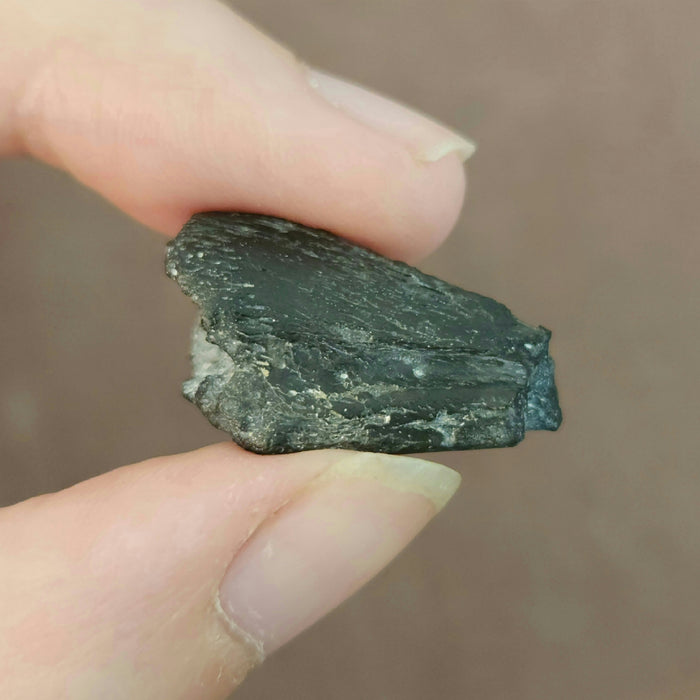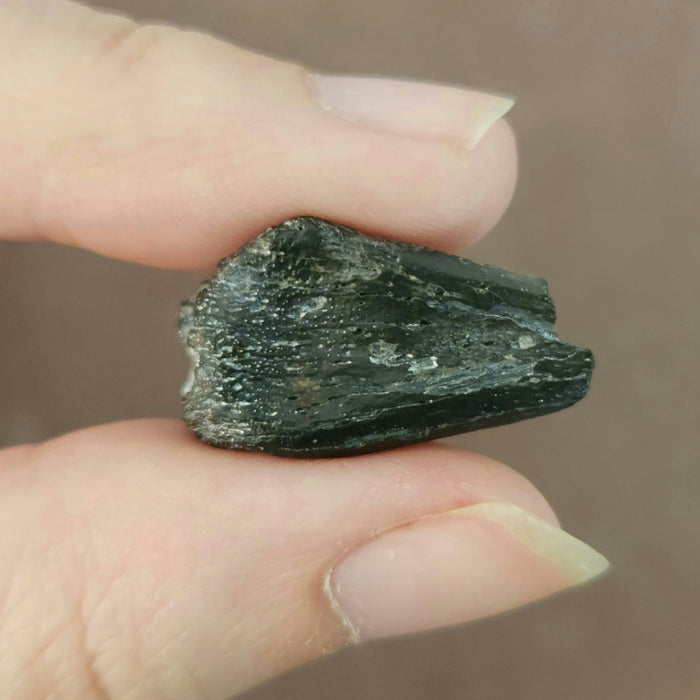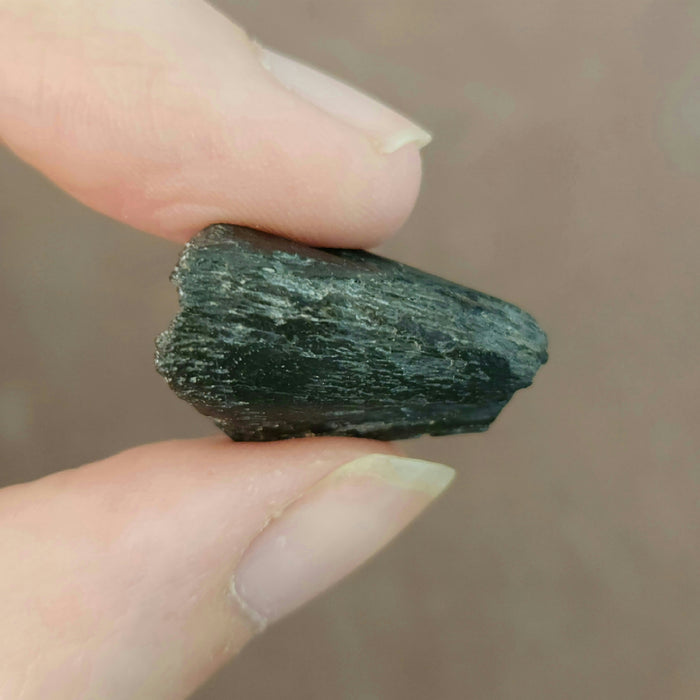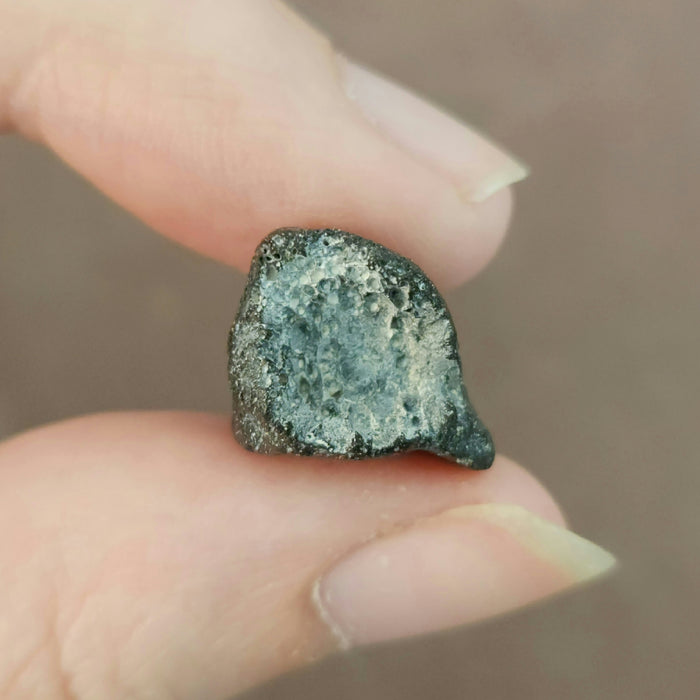
Struthiomimus Foot Claw | Aguja Formation
70 Million Years Ago
Specimen approx. size: 1"
Comes in an acrylic case
Struthiomimus (meaning "ostrich mimic") is a genus of ornithomimid dinosaurs from the late Cretaceous of North America. Ornithomimids were long-legged, bipedal, theropod dinosaurs which bore somewhat of a resemblance to modern ostriches. They were probably among the fastest of all dinosaurs. Ornithomimids were herbivores or omnivores and had toothless beaks. Many species have been found with gastroliths in their stomachs, characteristic of herbivores. The sheer abundance of ornithomimids is also consistent with the idea that they were plant eaters, as herbivores usually outnumber carnivores in an ecosystem. However, they may have been omnivores that ate both plants and small animal prey.
The Aguja Formation is a geological formation in North America. It is exposed in Texas in the United States and Chihuahua and Coahuila in Mexico. Its strata dates back to the Late Cretaceous. Dinosaur remains are among the fossils that have been recovered from the formation. Fossil palms have also been unearthed here.




